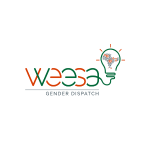

Women’s Economic Empowerment in South Asia (Hosted by SAR GIL)
Tags
- Women’s Groups (20)
- Gender-based Violence (17)
- Implementation Completion Report (ICR) (15)
- Measurement (10)
- Leadership (18)
- Afghanistan (13)
- Social Norms (8)
- Infographics (9)
- Transportation (10)
- Green Transition (6)
- Toolkits (10)
- Pakistan (17)
- Energy (10)
- Jobs (43)
- Self-help Groups (12)
- Infrastructure (7)
- Agriculture (12)
- Social Protection (12)
- Digital Inclusion (16)
- Nepal (7)
- Private Sector (14)
- Care Economy (10)
- Agency and Self-efficacy (4)
- Bhutan (2)
- Sri Lanka (5)
- Podcast (17)
- Operational Documents (20)
- India (23)
- Assets and Resources (14)
- Bangladesh (19)
- Maldives (1)
- Climate Change (18)
- Entrepreneurship (19)
- Financial Inclusion (10)
- Policies and Legislation (14)
- Male Engagement (7)
- Gender Budgeting (7)
- Implementation Completion Report Review (ICRR) (5)
- Education and Skills (22)
Documents
Power with Full Force: Getting to Gender Equality in the Hydropower Sector (2023)
Based on 65 corporate and 900 individual survey responses, this report discusses the challenges women face in the hydropower sector, such as gender biases, a shortage of women with STEM
Accelerating the Productive Use of Electricity: Enabling Energy Access to Power Rural Economic Growth (2023)
This report highlights the importance of actively promoting productive uses to MSMEs, including small farmers, as a way of accelerating development after communities gain access to electricity. An ecosystem approach
Opening Opportunities, Closing Gaps: Advancing Gender-Equal Benefits in Clean Cooking Operations (2022)
Slow progress toward access to clean cooking solutions has significant negative impacts on women, including harming health from disproportionate exposure to household air pollution, safety hazards and risks to well-being,
Pathways to Power: South Asia Baseline Assessment for Women Engineers in the Power Sector (2020)
To better understand the gaps and barriers impacting women in the South Asian energy sector, the World Bank conducted a regional baseline assessment. The study collected data from over 100
Getting to Gender Equality in Energy Infrastructure: Lessons from Electricity Generation, Transmission and Distribution Projects (2018)
Access to modern and clean forms of energy is considered critical to gender equality—beyond its intrinsic value as a core development objective— and increasingly recognized as smart economics. Under the
Exploring Opportunities for Gender Diversity in the Mining and Energy Sector in Serbia (2022)
This report is the first targeted gender assessment in the areas of mining and energy in Serbia. It aims to stimulate dialogue among policy makers, companies, and other relevant actors
Building the Business Case for Women’s Inclusive Financing in Last-Mile Renewable Energy Markets in Sub-Saharan Africa (2022)
One of the key constraints in improving energy access in the renewable energy sector is the availability and affordability of financing, especially for women-owned or -led micro, small, or medium
Understanding the Interaction between Gender, Energy, and Forced Displacement (2023)
Women bear the greatest burden from energy poverty, and forced displacement further entrenches gender inequalities. This brief aims to advance understanding of how energy access can help bridge gender gaps
The Energy Transition Fueled by Women’s Participation and Leadership (2023)
Increasing women in technical and leadership positions is essential to meeting the estimated 14 million new jobs needed for clean energy growth by 2030. The World Bank’s WePOWER Network, which
Women’s Employment in Energy Sector Utilities Toolkit (2023)
A “one-stop shop” for advice and resources on how to bolster women’s employment in energy utilities, this toolkit by the World Bank’s Energy Sector Management Assistance Program (ESMAP) addresses barriers